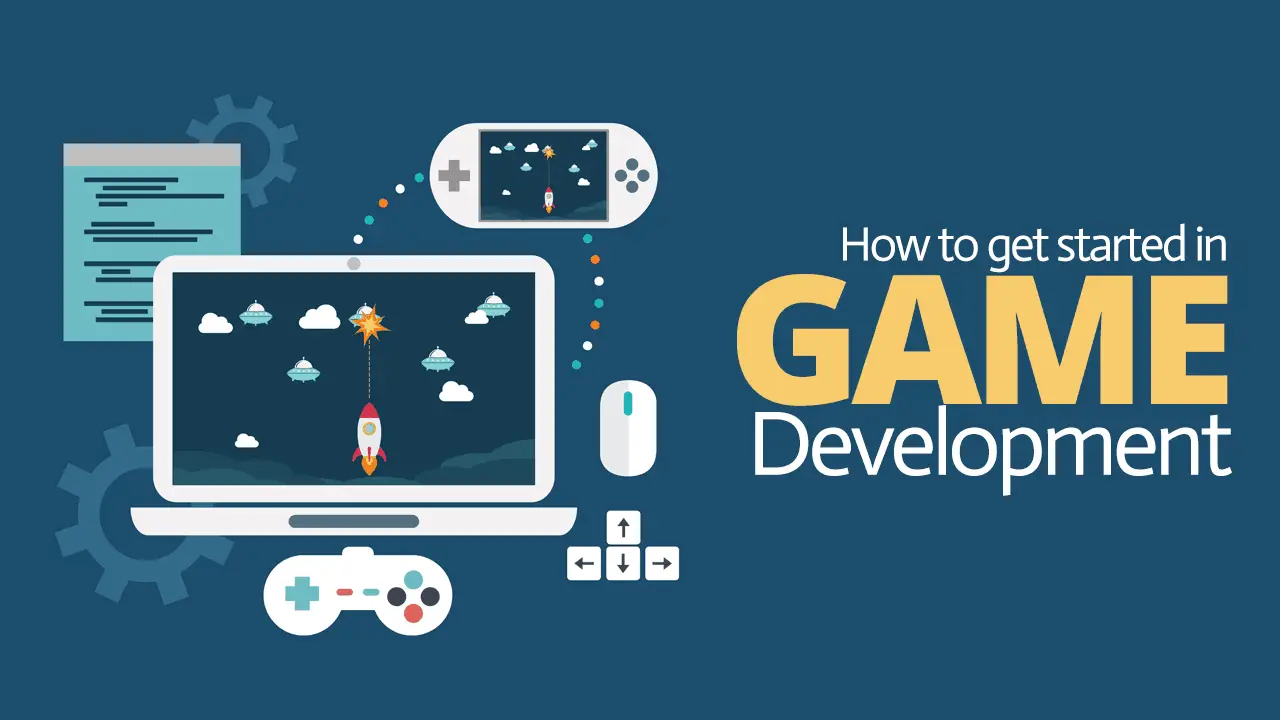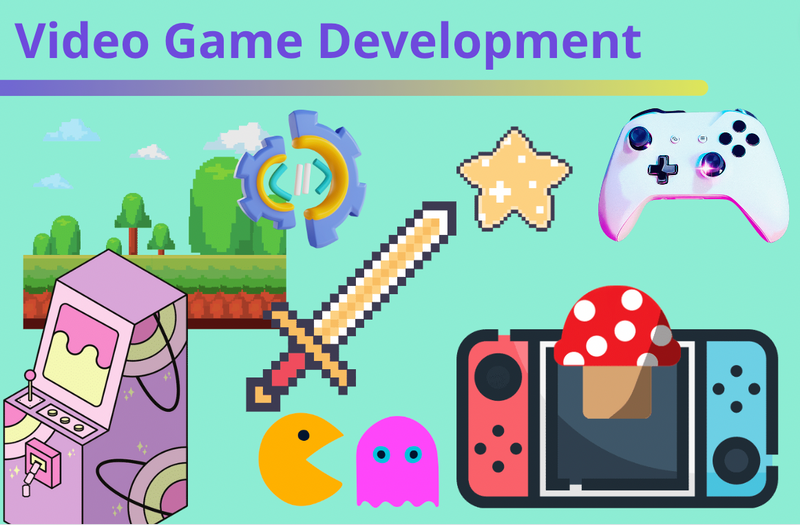Video game development is an exciting and creative field that allows you to bring your ideas to life. Whether you’re a beginner or have some programming experience, this guide will provide you with an overview of the tools and resources you need to get started on your journey into video game development.

1. Game Engines:
a. Unity: Unity is a popular and versatile game engine that supports 2D and 3D game development across multiple platforms, including mobile, PC, and consoles. It offers a visual editor, scripting capabilities, and a vast asset store.
b. Unreal Engine: Unreal Engine is another powerful game engine used by professionals and indie developers alike. It provides a wide range of tools, a visual scripting system (Blueprints), and advanced graphics capabilities.
c. Godot Engine: Godot Engine is a free and open-source game engine that offers a user-friendly interface, a unique scene system, and support for 2D and 3D game development.
2. Programming Languages:
a. C#: C# is the primary programming language used with the Unity game engine. It has a clean syntax, extensive documentation, and a large community of developers.
b. C++: Unreal Engine primarily uses C++ for game development. It offers more control and performance but requires a deeper understanding of programming concepts.
c. GDScript: GDScript is a scripting language used with the Godot Engine. It has a Python-like syntax and is easy to learn for beginners.
3. Game Development Tools:
a. Visual Studio: A popular integrated development environment (IDE) for programming in C# and C++. It offers advanced features like code completion, debugging, and code refactoring.
b. MonoDevelop/Rider: Alternative IDEs for C# development with Unity, providing similar features to Visual Studio.
c. Blender: A powerful 3D modeling and animation tool that can be used to create assets for your games.
d. Adobe Photoshop/GIMP: Image editing software for creating or modifying game art and assets.
4. Online Learning Platforms:
a. Udemy: Offers a wide range of game development courses taught by industry professionals.
b. Coursera: Provides online courses from universities and institutions, including game development-related topics.
c. YouTube: A vast resource of video tutorials and walkthroughs for various game development aspects.
5. Game Development Communities and Forums:
a. Unity Forums: The official Unity community forum where developers can ask questions, share knowledge, and seek help.
b. Unreal Engine Forums: The official Unreal Engine community forum for discussions and support.
c. Reddit: Subreddits like r/gamedev and r/Unity3D are vibrant communities where developers share ideas, showcase their work, and offer advice.
6. Game Development Books:
a. “Unity in Action” by Joe Hocking: A beginner-friendly book that covers the essentials of Unity game development.
b. “Game Programming Patterns” by Robert Nystrom: Explores common patterns and techniques used in game development.
c. “Learning C# by Developing Games with Unity” by Harrison Ferrone: Teaches C# programming through practical game development examples.
7. Game Development Websites and Blogs:
a. Gamasutra: Provides news, articles, and insights from industry professionals.
b. GameDev.net: A community-driven website with tutorials, resources, and a forum for game developers.
c. Unity Learn: Offers official tutorials, documentation, and learning resources from Unity Technologies.
8. Game Jams and Events:
a. Global Game Jam: An annual event where participants create games within a limited time frame, fostering creativity and collaboration.
b. Ludum Dare: A recurring online game jam where developers worldwide compete to create games based on a given theme.
c. Local Meetups and Conferences: Attend game development meetups or conferences in your area to connect with other developers and learn from industry experts.

Remember, game development is a journey that requires patience, perseverance, and continuous learning. Start small, experiment, and gradually build your skills and knowledge. Don’t be afraid to ask questions, seek feedback, and showcase your work. With the right tools, resources, and a passion for creating games, you’ll be well on your way to becoming a skilled game developer.